Harnessing Data for Enhanced Health Management: One Health Data Integration
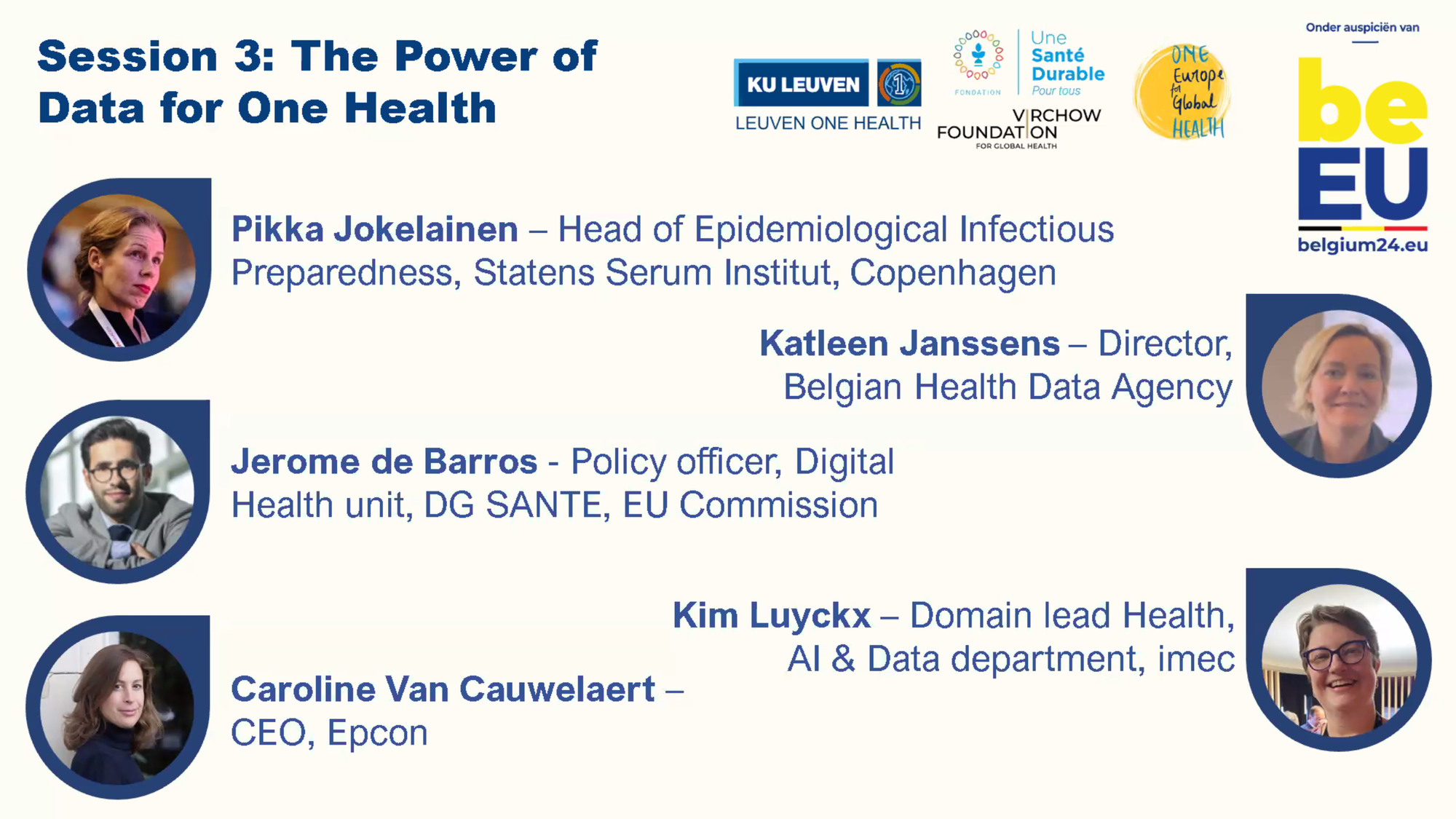
In a recent symposium focused on the integration and effective use of data across different health domains, experts gathered to discuss the critical role of data in managing public health, environmental issues, and animal health under the concept of "One Health." 
This article provides an overview of the discussions, highlighting the innovative approaches and collaborative efforts in data management and utilization at various levels from local to European.
Understanding Data's Role in Health Management
The symposium kicked off with an introduction by Pikka JOKELAINEN, Head of Function, Epidemiological Infectious Preparedness, Statens Serum Institute, Copenhagen, who set the stage for a deep dive into the essence of data. The panel progressed from basic questions like "What are data?" to more complex considerations of data use in health and environmental monitoring. This set a foundation for discussing how data can be leveraged to inform decisions at various administrative levels and within different sectors.
National Focus: Belgium's Approach to Health Data
Katleen JANSSENS, Director, Belgian Health Data Agency, provided insights into Belgium’s strategies for utilizing health data effectively. The country’s approach exemplifies the intricate link between local data collection and broader, international health needs. This is particularly relevant in the context of infectious disease preparedness, where understanding and managing data play pivotal roles in overcoming challenges posed by pathogen mobility across borders.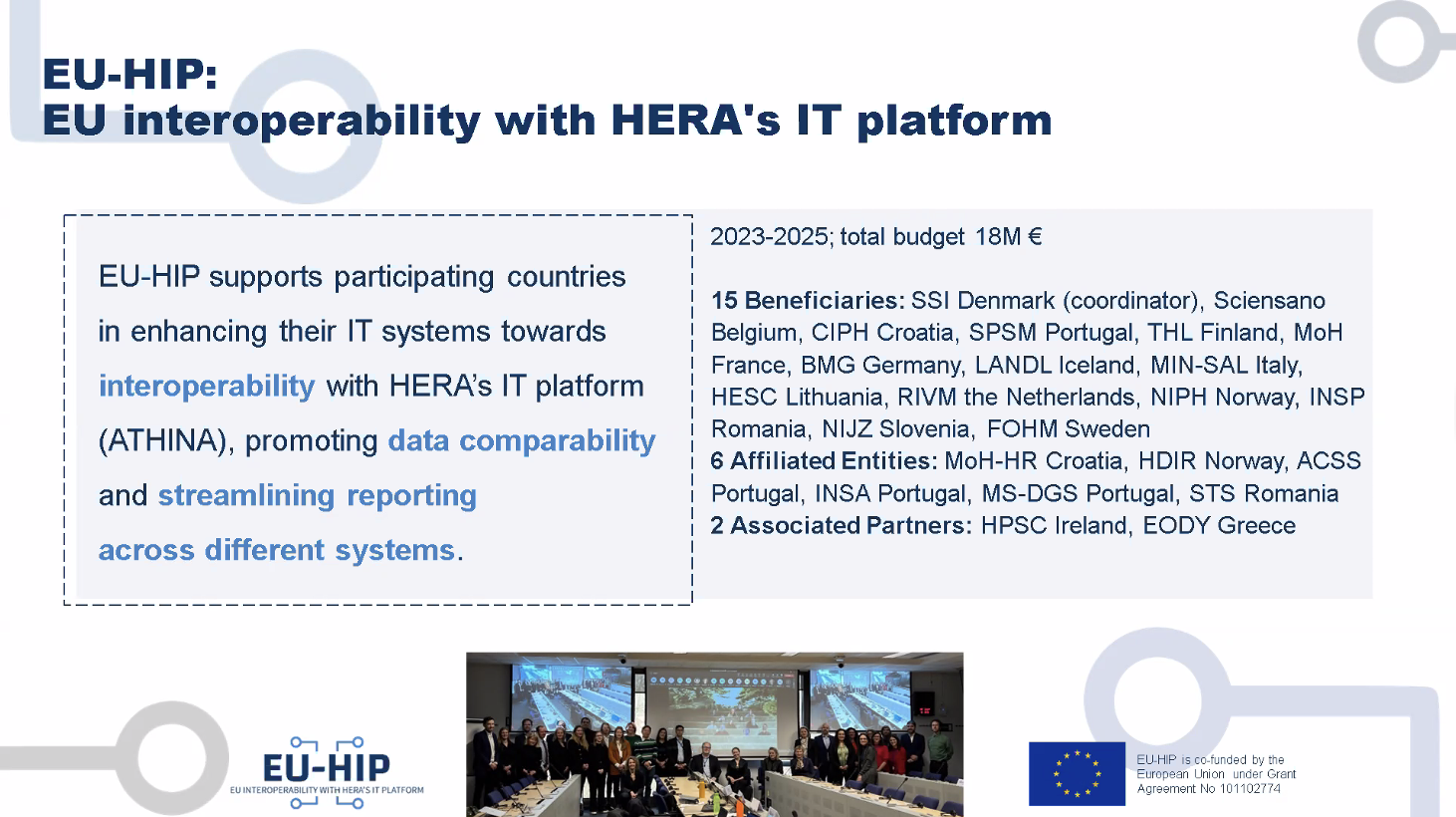
One Health Data: Bridging Local and Global Needs
The concept of "One Health" — which integrates human, animal, and environmental health data — was a focal point. The symposium discussed the need for data interoperability to ensure that diverse data sources from different domains could be integrated and utilized effectively. This is critical for managing cross-border health threats and supports the development of comprehensive surveillance systems that include data from human, animal, and environmental sources.
EU Initiatives and Projects
Further discussions centered on European-level initiatives aimed at enhancing data interoperability. One notable project mentioned was the EU-HIP, initiated by the Health Emergency Preparedness and Response Authority (HERA).

This project focuses on developing IT platforms to better manage health data across Europe, emphasizing the need for systems that can effectively communicate across borders and sectors.

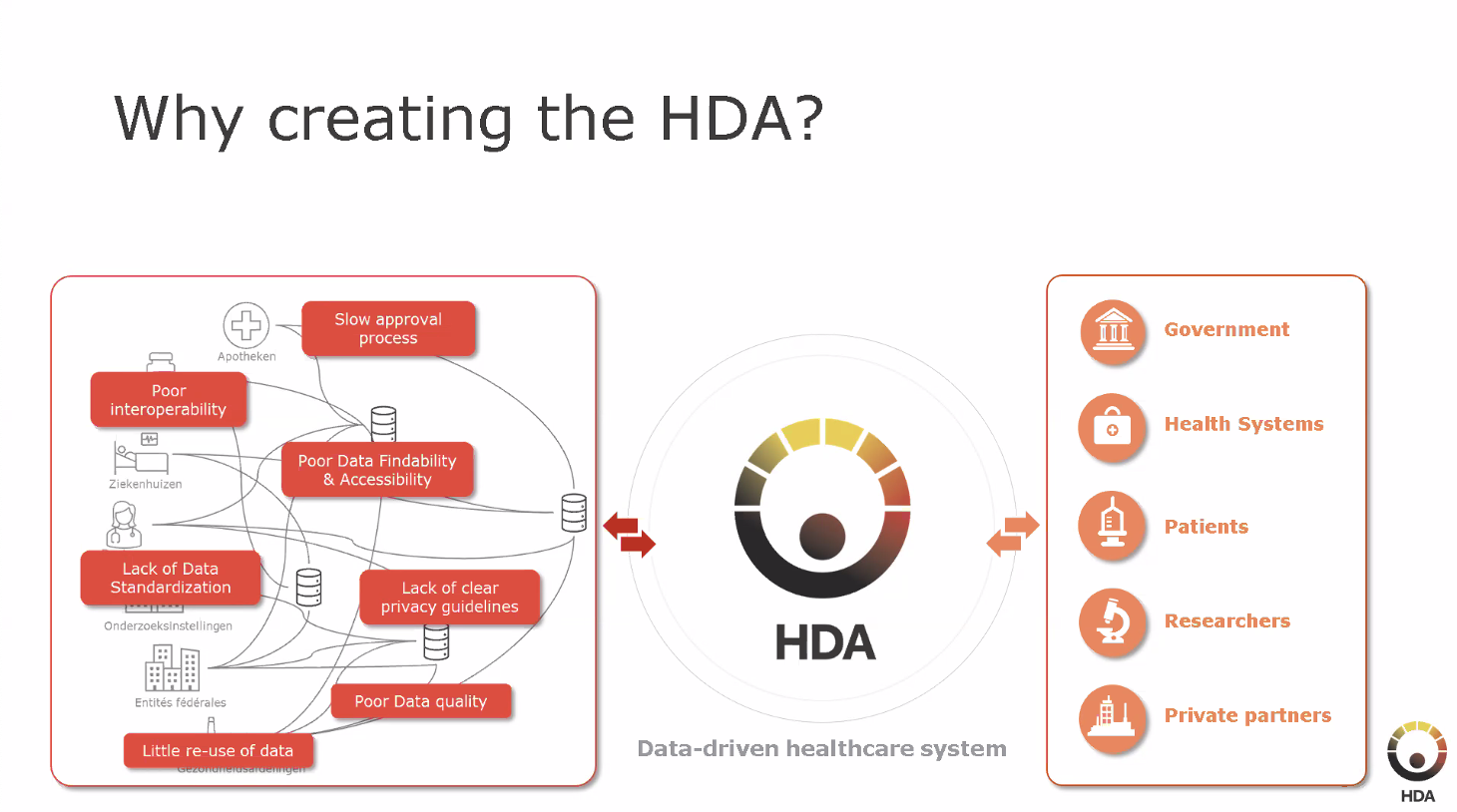
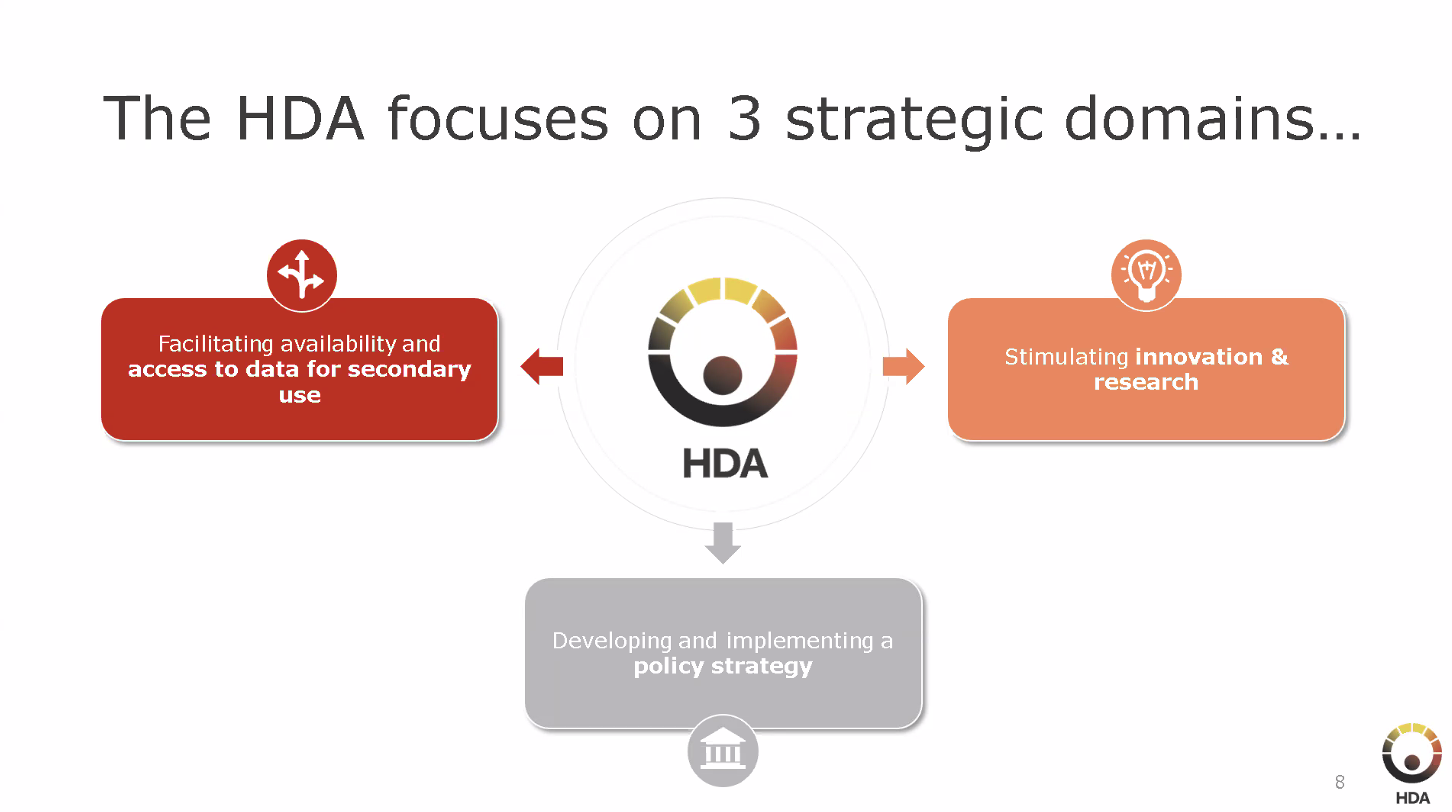
Case Study: Belgian Health Data Agency (HDA)
Katleen JANSSENS illustrated the practical challenges and solutions in managing a new health data agency. HDA was created to tackle issues like the lack of data standardization and poor data quality in Belgium. The agency aims to facilitate access to health data for secondary uses, such as research and policy development, thereby enhancing public health outcomes through better-informed strategies.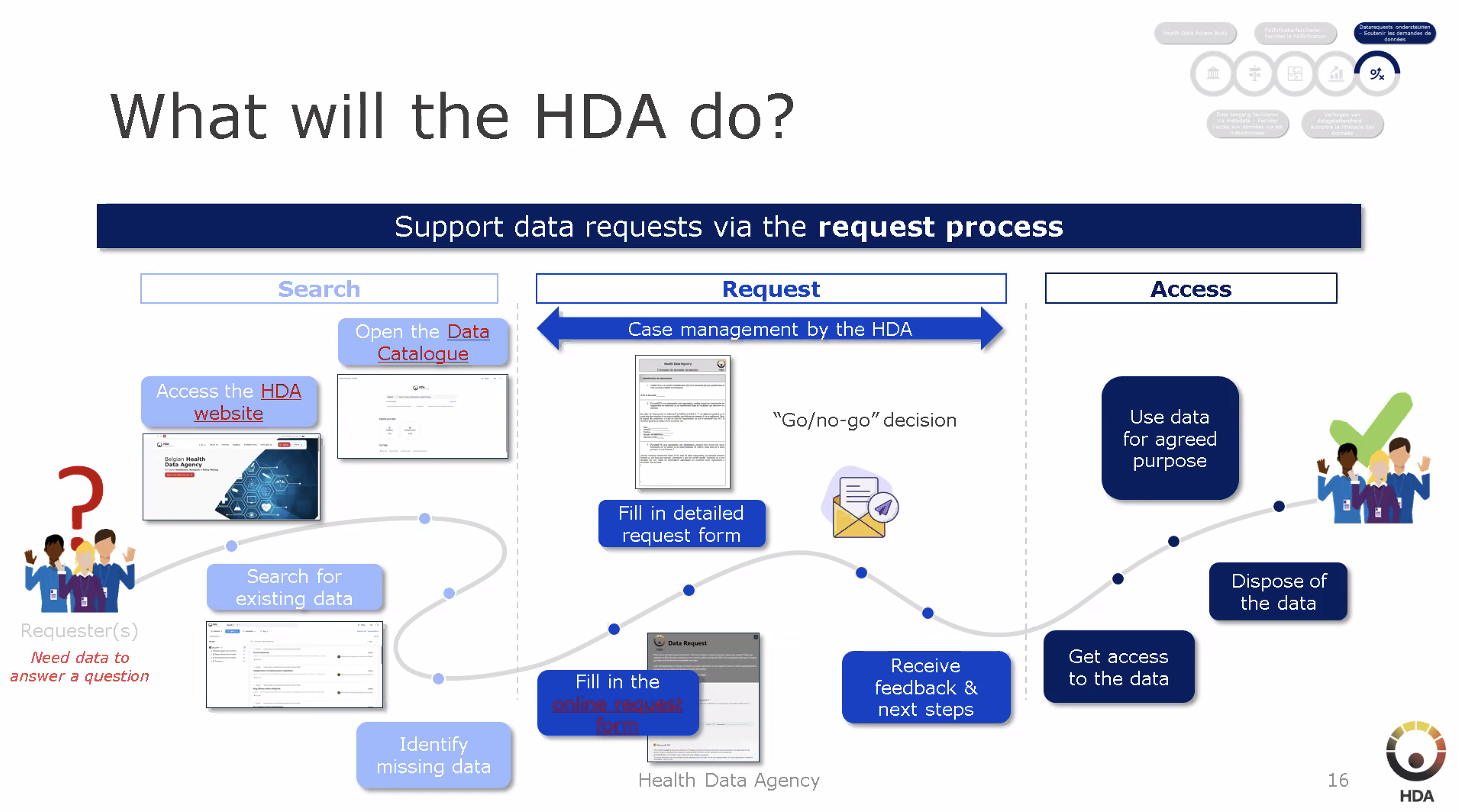
Conclusion: The Future of Health Data Management
The symposium concluded with a call to remain humble yet curious about the potentials of new data types and sources. The interconnected nature of health data demands a collaborative approach to ensure that data not only informs but also transforms public health strategies.By combining insights from law, data management, and health sciences, the symposium underscored the importance of a multidisciplinary approach in tackling the challenges of modern health data management. It also highlighted the ongoing need for innovation and cooperation in developing data-driven solutions that can lead to more effective health interventions and a healthier future for all.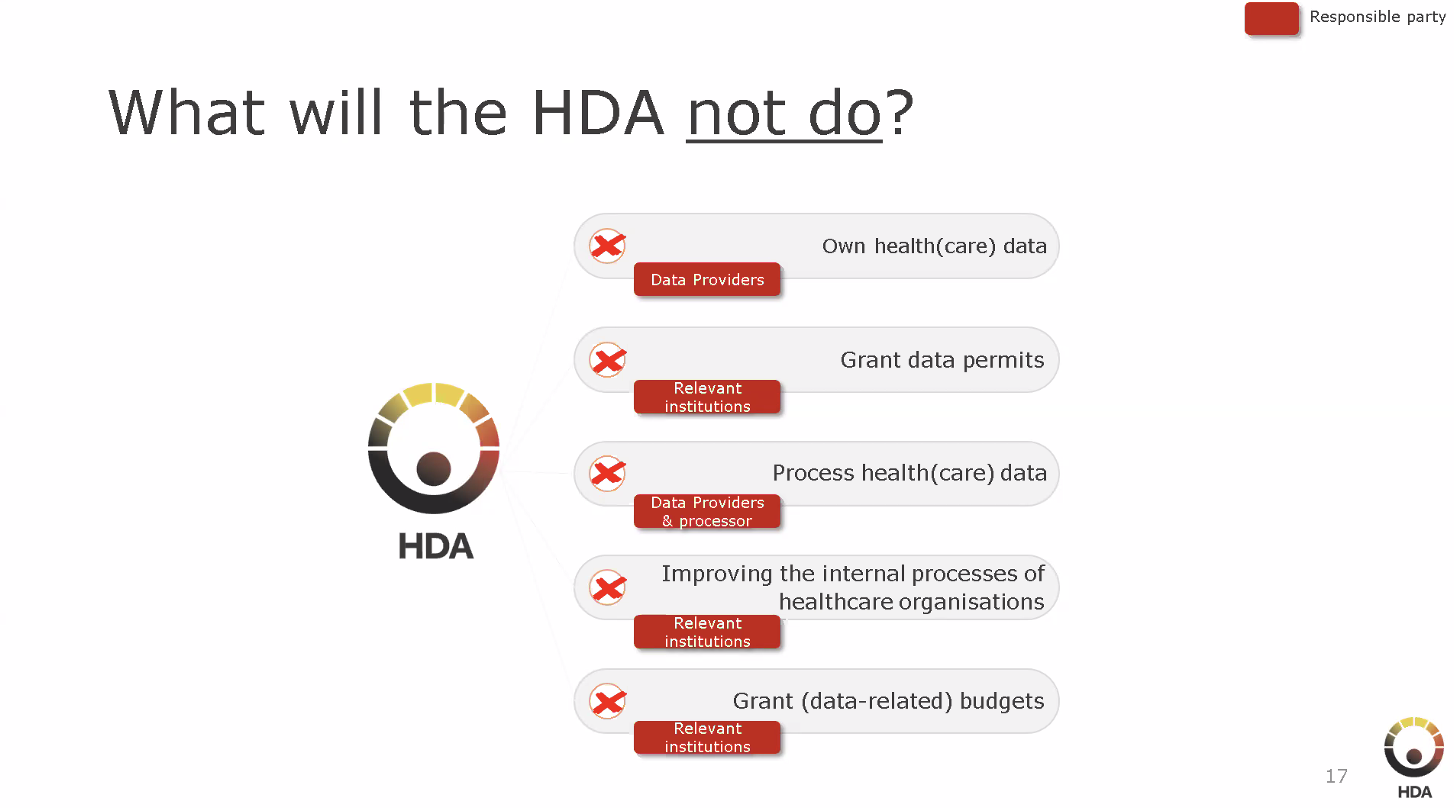
Source : One Health – Research & Innovation at the crossroads of environment and healthTuesday April 23, 2024 Auditorium Emma Vorlat, Agora Leercentrum, Parkstraat 47 Leuven, Belgium